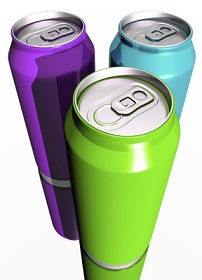 Sugar sweetened beverages have gained significant amount of media attention in recent months. This is partly due to the proposal by New York City Mayor Michael Bloomberg to ban sugar sweetened drinks that are greater than 16 ounces. The New York City Board of Health has recently approved the proposed ban on large sized sugary drinks, and this is likely to spread to other cities throughout the United States.
Sugar sweetened beverages have gained significant amount of media attention in recent months. This is partly due to the proposal by New York City Mayor Michael Bloomberg to ban sugar sweetened drinks that are greater than 16 ounces. The New York City Board of Health has recently approved the proposed ban on large sized sugary drinks, and this is likely to spread to other cities throughout the United States.
The consumption of sugar sweetened drinks has been implicated as one of the contributing factors for the growing obesity epidemic in both adults and children. Sugar sweetened beverages are nutrient poor and calorie dense, and thus promote weight gain. In addition, the sugar load causes excess insulin secretion which contributes to fat deposition in adipose tissues. Obesity increases the risk of type 2 diabetes and its associated complications of heart disease and stroke. Thus, the consumption of sugar sweetened drinks has become a public health concern and has significant impact upon the health of the nation as a whole. Now, there is even more evidence to support the notion that sugar sweetened drinks contribute to poor health though fueling the obesity epidemic.
Researchers, led by Janne C. de Ruyter, M. Sc. of VU University Amsterdam, has found that sugar sweetened beverages contribute to weight gain in healthy children. The results of their study were published online in the New England Journal of Medicine. The researchers conducted a double blind controlled trial involving 641 normal weight children aged 4 years to 11 years of age. Study participants were randomized to receive 8 ounces per day of a sugar free artificially sweetened beverage or a sugar containing beverage. The study participants were followed for an 18 month period. Weight increased by 6.35 kg in the sugar free group and by 7.37 kg in the sugar group. In addition, skinfold-thickness measurements, waist-to-height ratio, and fat mass also increased significantly more in the sugar group.
The authors wrote, “We found that masked replacement of a sugar containing beverage with a sugar-free beveragesignificantly reduced weight gain and body fatgain in healthy children… Children in the United States consume on average almost three times as many calories fromsugar-sweetened beverages as the amount providedin our trial. We speculate that decreasedconsumption of such beverages might reduce thehigh prevalence of overweight in these children”.
In an accompanying editorial, Dr. Sonia Caprio commented “…calories from sugar sweetened beverages do matter. Furthermore, policy decisions about sugar-sweetened beverages should not be considered in isolation. Other strategies to achieve and maintain normal weight, including increasing physical activity, will be important to stem the obesity epidemic and its effects. The time has come to take action and strongly support and implement the recommendations from the Institute of Medicine, the American Heart Association, the Obesity Society, and many other organizations to reduce consumption of sugar-sweetened beverages in both children and adults”.
This study provides convincing evidence that consuming sugar sweetened beverages causes weight gain in normal weight children. When done over the entire period of adolescent and even into adulthood, the contribution to weight gain and the development of obesity can be quite dramatic. This study should be enough to allow health policy makers to implement new recommendations to help limit the consumption of sugar sweetened drinks in an attempt to slow and even reverse the growing obesity epidemic in both children and adults. This is not only important on an individual health basis, but is also important at the public health level. The future health of our nation is dependent upon it.
References:
Janne C. de Ruyter et al. “A Trial of Sugar-free or Sugar-Sweetened Beverages and Body Weight in Children” N. Engl. J. Med.September 21, 2012 doi:10.1056/NEJMoa1203034
Sonia Caprio “Calories from Soft Drinks – Do They Matter” N. Engl. J. Med. September 21, 2012 doi: 10.1056/NEJMe1209884
Image: FreeDigitalPhotos.net










 DrSamGirgis.com is a blog about medicine, nutrition, health, wellness, and breaking medical news. At DrSamGirgis.com, the goal is to provide a forum for discussion on health and wellness topics and to provide the latest medical research findings and breaking medical news commentary.
DrSamGirgis.com is a blog about medicine, nutrition, health, wellness, and breaking medical news. At DrSamGirgis.com, the goal is to provide a forum for discussion on health and wellness topics and to provide the latest medical research findings and breaking medical news commentary.
{ 0 comments… add one now }